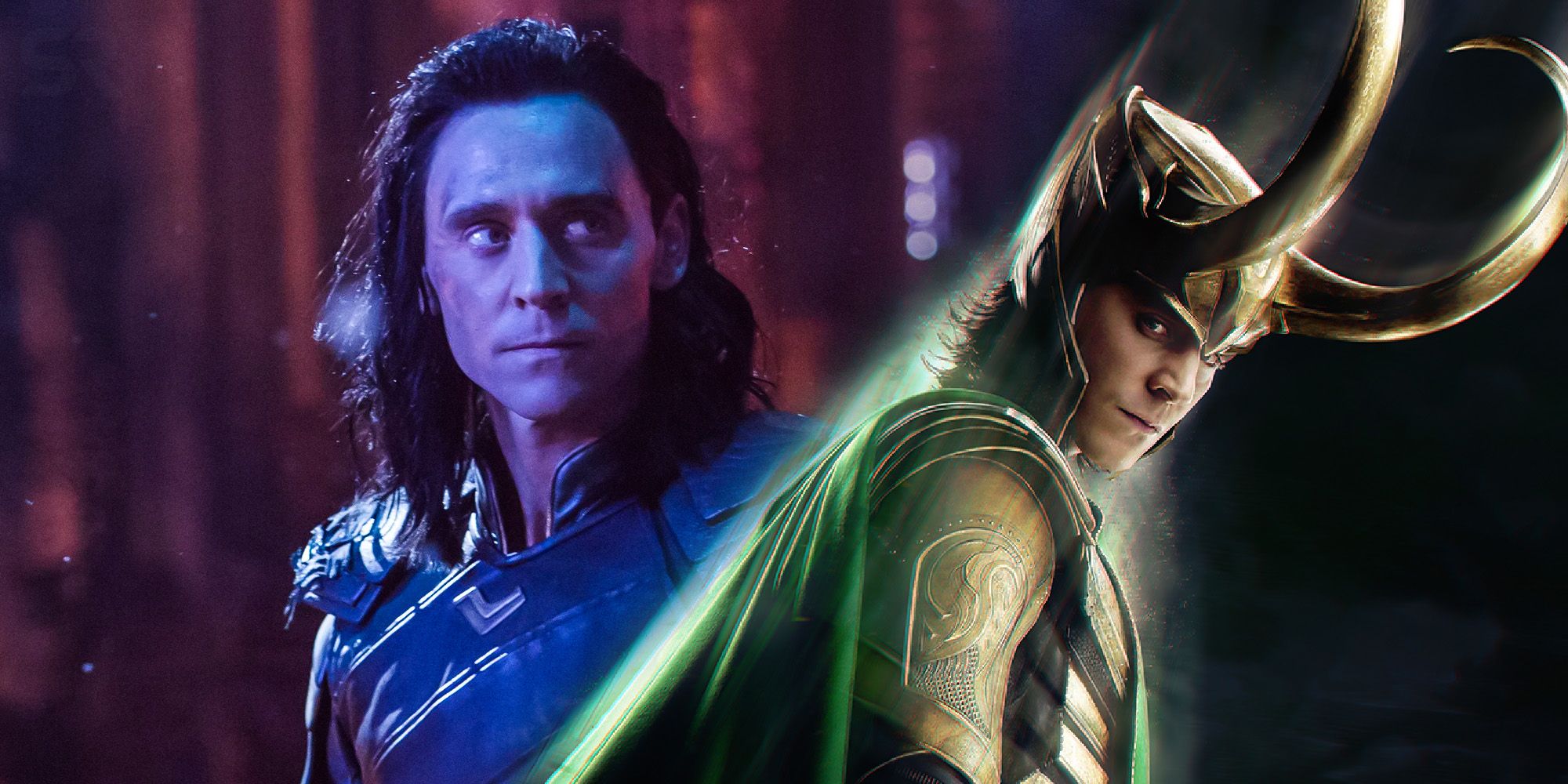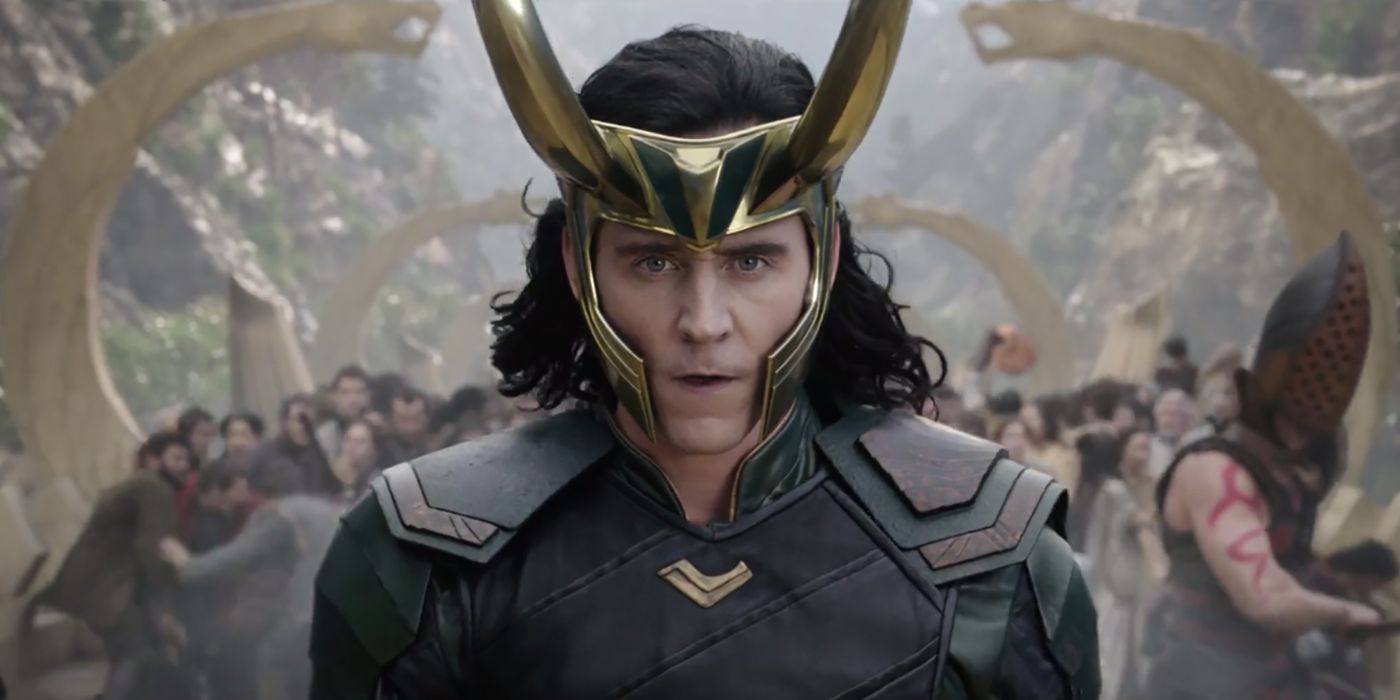Loki's costume change in the MCU has a hidden meaning. While Loki (Tom Hiddleston) originally wore his iconic golden horned helmet in some of the earlier MCU films, including Thor and The Avengers, the helmet disappears from Loki’s costume within Thor: The Dark World. Apart from a brief appearance at the end of Thor: Ragnarok, Loki only wears the horned helmet in the MCU films in which Loki is the main villain, which suggests that the helmet is linked to his overall arc throughout the MCU and his transition from a villain to a hero.
There are multiple meanings behind Loki’s iconic helmet, both in the Marvel universe and out. In Asgard, Loki’s helmet is representative of Asgardian royalty and the horns on Loki’s helmet signify his mastery of magic. In an MTV interview from 2010, Tom Hiddleston points out that Loki’s helmet, or the “steel balaclava” as he nicknamed it, exhibits some satanic imagery due to the Asgardian helmet’s pair of horns (which also earns him a nickname from Tony Stark in The Avengers, which appears to emphasize his villain persona. Since the horns on Loki’s helmet also mimic the horns present on his father Odin’s (Anthony Hopkins) helmet, Loki’s helmet could be a representation of his past baggage which made him become a villain to begin with, including his complicated relationship with Odin, his desire to be the next king of Asgard, and his role as the black sheep of his family.
Loki wears the horned helmet most often within Thor and The Avengers, two films in which Loki becomes motivated by his complex origins to gain the throne he's owed and vengeance against his brother Thor (Chris Hemsworth) for being the favored son. In Thor, Loki learns that he is actually the son of Laufey (Colm Feore), the leader of the Frost Giants and Asgard’s enemy, whom Odin adopted after the conclusion of the Asgard-Jotunheim war. Because of his true lineage, Loki believes that Odin never intended for him to inherit the throne despite being led to believe that it was his birthright as a prince of Asgard. His father’s betrayal and favoritism of Thor then becomes the reason Loki attempts to attain a throne through his own means, first in Thor by proving he’s worthy to be the next king of Asgard by “saving” Odin from being assassinated by Laufey and a second time in The Avengers when Loki tries to rule over Earth.
Within Thor: The Dark World, however, Loki no longer wears the horned helmet as an accessory to his costume once he begins to shed his villain persona, overcomes his past issues with his family, and transitions into a more heroic character. After the death of his mother Frigga (Rene Russo), the only member of Loki’s adoptive family he was close to, a lot of his former goals become less important to him. Loki briefly gives up on his quest to become the king of Asgard, begins to let go of his resentment of Thor as Odin’s favorite son, and even teams up with Thor to help him defeat Malekith (Christopher Eccleston) and the Dark Elves. In Thor: Ragnarok, Loki continues his evolution by briefly reconnecting with Odin before his death and helping Thor defeat Hela (Cate Blanchett) in Asgard despite his many opportunities to desert him.
The only flaw with the theory that Loki’s helmet is a metaphorical representation of Loki’s past baggage is the fact that the helmet resurfaces at the end of Thor: Ragnarok, a time when he has resolved most of his conflicts with his family. When Loki returns to Asgard upon The Statesman to help Thor confront their sister Hela, Loki is shown to be wearing the horned helmet with an updated design. Since the helmet isn’t as heavy and restrictive as its previous design seen within Thor and The Avengers, the helmet’s upgraded lightweight design may indicate that Loki’s origins and past aren’t weighing on him as they did previously. He has come to accept his alignment to Asgard once more, even if he doesn't aspire to rule it. This is also evident through Loki’s last speech within Avengers: Infinity War. When Loki pretends to pledge his allegiance to Thanos (Josh Brolin), Loki emotionally lists all of his titles, including prince of Asgard, Odinson, and the rightful king of Jotunhiem as if he's finally come to peace with his origins.








